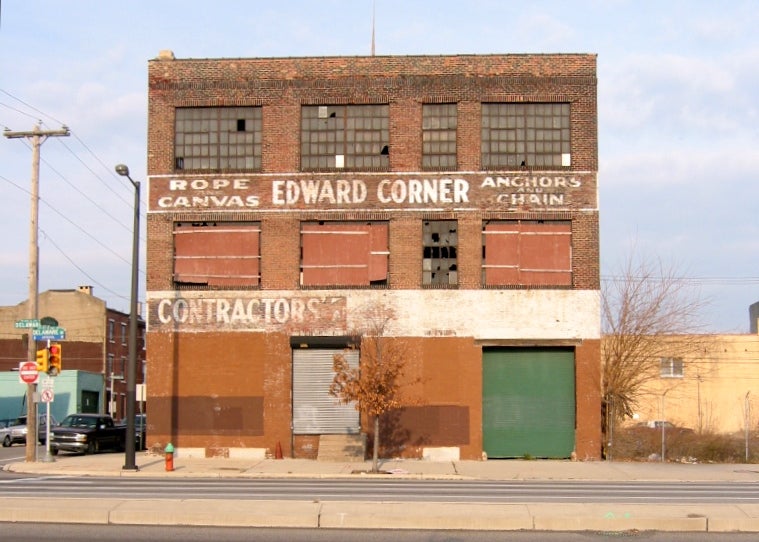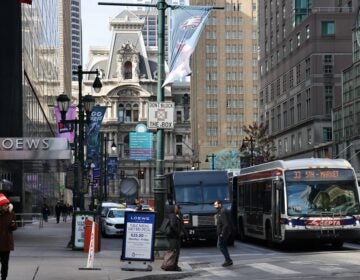October 20: Edward Corner reuse | Basciano on 22nd and Market | Redlining’s roots

Legislation legalizing ride-hailing in Philly passed the Pennsylvania House on Wednesday afternoon, with a 1.4 percent tax on all rides. The Inquirer reports the Senate could vote on it next week.
OCF Realty’s Naked Philly reports Michael Samschick’s Core Realty has plans to reuse the Edward Corner marine warehouse in Fishtown, and build a new building on the adjacent parking lot to the north. Core had previously sought to demolish the warehouse, but it has since been historically designated. The project will go to Civic Design Review on November 1.
Jacob Adelman reports the Philadelphia Housing Authority Board is expected to approve plans for Alterra Property Group to replace its former headquarters on Chestnut Street with a new apartment building. “The deal would require Alterra, which is partnering on the project with Rheal Capital Management LLC of New York, to rent 40 of the project’s 200 or so apartments to low-income residents, the agency said in a statement.”
Aaron Moselle reports that Richard Basciano took the stand yesterday in the civil trial over the demolition-related building collapse at 22nd and Market. Basciano, owner of the properties being demolished, said that while he was on site at the time of the collapse, he didn’t watch the wall fall (he was in the bathroom) and he didn’t flee the scene (he had an eye appointment).
NPR’s takes a look at the roots of redlining – government backed housing and loan discrimination – via a the Mapping Inequality project at the University of Richmond, which digitized and digests the Home Owners’ Loan Corporation maps from the 1930s and 1940s. “More than a half-century of research has shown housing to be for the twentieth century what slavery was to the antebellum period, namely the broad foundation of both American prosperity and racial inequality. Through offering a digital library of the state’s role in housing development, Mapping Inequality illustrates vividly the interplay between racism, administrative culture, economics, and the built environment.” Here’s the Philly map.
WHYY is your source for fact-based, in-depth journalism and information. As a nonprofit organization, we rely on financial support from readers like you. Please give today.







